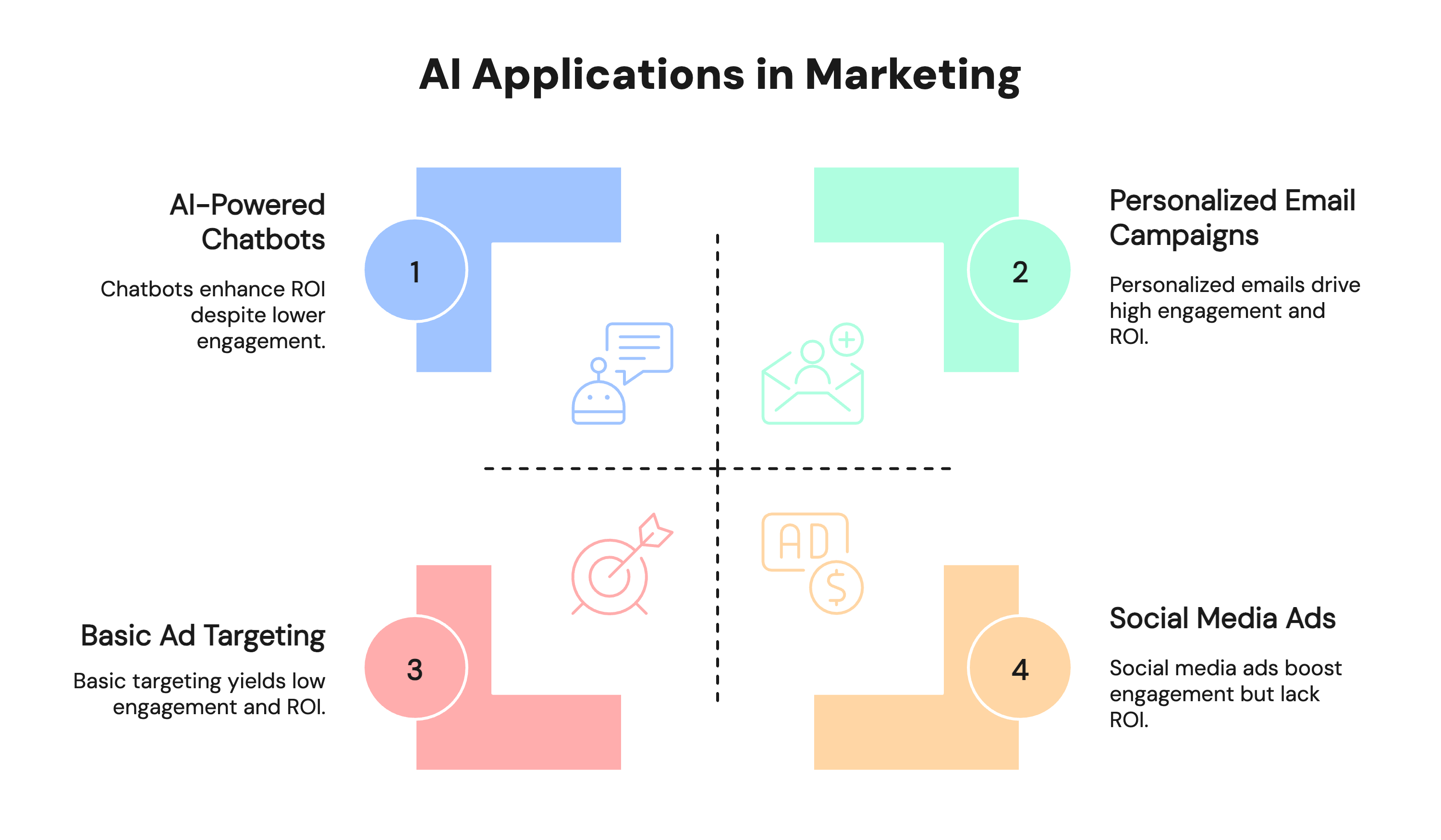How to Use AI in Sales and Make More Money in 2025
Ask anyone in business if they want to make more money and it’s highly unlikely they will say no. If anything, sales teams are bending over backwards trying to figure out how to take their sales game to the next level and make more money. Enter the wild world of artificial intelligence (AI). If you’re trying to convince customers to buy from you - regardless of what you’re selling - it’s high time to learn how to use AI in sales!
It’s no secret that AI, especially generative AI, is revolutionizing the way businesses approach sales, helping teams work smarter and close more deals. Let’s explore how you can use AI in your business and start cashing too!
How AI Tools Help Sales Reps Save Time
Artificial intelligence is upending the sales process, making it more efficient, data-driven, and personalized. AI tools can automate repetitive tasks, analyze vast amounts of customer data, and provide actionable insights that help sales teams make informed decisions. For example, AI-powered chatbots can handle initial customer inquiries, freeing up sales reps to focus on high-value tasks like closing deals.
.png)
Case studies and articles printed on the subject demonstrate the positive impact of AI on sales. For example, Harvard Business Review reported companies using AI for sales saw a 50% increase in leads and appointments, a 60-70% reduction in call time, and a 40-60% cost reduction.
Microsoft reported 90% of users that responded to a case study want AI at work because it helps them save time. They also found that 85% of respondents like AI because it helps them focus on the critical tasks that are most important in their work day.
Hubspot found 53% of people in sales are using AI for lead scoring to find people most likely to buy. They also found that 76% of respondents in their study felt AI tools are perfect for making correspondence feel more personalized.
The relationship between AI and increased sales revenue is clear. AI tools helps sales teams identify high-quality leads, personalize their approach, and close deals faster. AI can also help predict customer churn, allowing sales teams to proactively address issues and retain valuable customers. As a result, companies that adopt AI in their sales processes are likely to see a significant boost in revenue.
How to Use AI Tools for Sales Enablement
AI has numerous applications in sales and marketing. In marketing, AI can help segment customers, personalize content, and optimize ad targeting. For instance, AI algorithms can analyze customer behavior and preferences to create targeted email campaigns or social media ads. This leads to higher engagement rates and better ROI for marketing efforts.

To optimize marketing campaigns and strategies with AI, start by collecting and analyzing customer data. Use AI tools to identify patterns and insights that can inform your marketing decisions. Implement AI-powered chatbots on your website to provide instant customer support and gather valuable data. Continuously monitor and adjust your AI-driven marketing efforts based on performance metrics to maximize results.
How to Use AI Sales Tools for Lead Generation
AI can revolutionize lead generation by helping sales teams identify and target prime sales leads. AI algorithms can analyze vast amounts of data from various sources, such as social media, website analytics, and customer databases, to identify patterns and predict which leads are most likely to convert.
.png)
Once high-quality leads are identified, AI can also play a significant role in nurturing and converting them. AI-powered chatbots can engage with leads in real-time, answering questions and guiding them through the sales funnel. AI can also personalize email campaigns and follow-ups based on lead behavior and preferences, increasing the likelihood of conversion.
How to Use AI Tools for Sales Coaching
AI can greatly enhance sales coaching and performance. AI-powered tools can analyze sales calls and emails to provide personalized feedback and coaching to sales reps. For example, AI can identify areas where a rep needs improvement, such as handling objections or asking the right questions, and provide targeted training recommendations.
.png)
AI can also facilitate continual learning and development in sales. By analyzing performance data over time, AI can identify trends and best practices that can be shared across the sales team. This allows for a more dynamic and adaptive approach to sales training, rather than relying on static, one-size-fits-all training programs.
How to Create an AI-Powered Sales Strategy
Implementing AI in your sales strategy requires careful planning and execution. Here's a step-by-step guide to getting more leads in your sales pipeline using AI:
1. Identify your sales goals and challenges.
2. Research and select AI tools that align with your needs.
3. Integrate AI tools with your existing sales software (e.g., CRM).
4. Train your sales team on how to use the AI tools effectively for sales forecasting, lead generation, sales automation, etc.
5. Monitor sales team performance and make data-driven adjustments as needed.
.png)
When identifying the right AI tools for your sales organization, consider factors such as ease of use, integration capabilities, and scalability. Some popular AI sales tools include Salesforce Einstein, Drift, and Gong.io.
The cost of implementing AI in sales varies depending on the tools and scope of implementation. However, the potential ROI is significant. Fortune reported some companies are making as much as $3.50 for every dollar they invest in AI tools.
Embracing the Future of AI and Sales
As AI technology continues to advance, the future possibilities for AI in sales are exciting. Some potential future developments include:
- More sophisticated predictive analytics for accurate sales forecasting
- Sales automation through AI-powered chatbots that can handle complex customer interactions
- Seamless integration of AI with other emerging technologies, such as augmented reality, for immersive sales process
.png)
To prepare the salespeople on your sales team for an AI-integrated future, foster a culture of continuous learning and adaptability. Provide training and resources on AI tools and best practices. Encourage experimentation and data-driven decision making. By embracing AI as a tool to enhance human capabilities, your sales team will be well-positioned for success in the future.
How to Use Generative AI Tools to Boost Sales
AI-powered content creation tools like Castmagic can be a game-changer for sales teams looking to create compelling, personalized content at scale. With Castmagic, you can quickly generate a wide variety of content assets from a single media file, such as:
- Sales call summaries and follow-up emails
- Customer pain points and insights
- Product demos and explainer videos
- Case studies and testimonials
- Social media posts, LinkedIn updates, and email newsletters
These AI-generated content pieces can be used throughout the sales funnel to engage prospects, nurture leads, and close deals faster.
.png)
For example, you can use Castmagic to:
1. Transcribe and analyze sales calls, identifying key topics, questions asked, and next steps. This helps you create targeted follow-up content and tailor your sales approach for each prospect.
2. Generate customer pain points and insights from discovery calls, helping you better understand their needs and position your product as the ideal solution.
3. Quickly brainstorm ideas for creating product demos, explainer videos, case studies and testimonials from existing content. These types of assets enable you to showcase your offerings and build trust with potential customers.
4. Produce engaging social media content and email newsletters to attract and nurture leads, keeping your brand top-of-mind and moving prospects closer to a purchase decision.
Embrace Generative AI and Cash In
Automating much of the time-consuming content creation process with AI tools like Castmagic allows sales reps to focus on what they do best - building relationships and closing deals. The companies that are embracing AI, especially generative AI, are closing more deals and making more money. You can too. It may not happen overnight, but there’s no reason you can’t take advantage of the sales tools that are available.
Want to try Castmagic for yourself and see how it can help you in your business? Click here to start a free trial today!
Start Repurposing Media with Castmagic
Paste a link from:









Place a link to 1 media file below and get 100+ content assets instantly.
Castmagic transforms your audio and video into blogs, social posts, newsletters, show notes, and more.
Start Repurposing Your Media

Click or drag your audio/video file here
One upload. Generate endless content.
1. Upload Media File: Drag and drop your audio or video file.
2. Get Instant Transcript: 99% accurate, perfectly formatted, speaker-labeled transcripts in 60+ languages.
3. Generate Content: Create publish-ready blogs, social posts, newsletters, and more with AI.

Automate Your Content Workflow with AI










